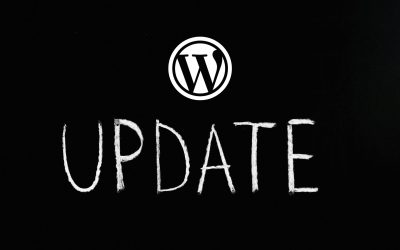What is WordPress?
WordPress powers nearly one-third of the world’s websites, from small personal blogs to the complex sites of major corporations. WordPress is only one of the site builders and content management systems users can download and install for free, but it is its ease of use for end users that makes it the most popular content management system in use today.
WordPress vs. the Competition
WordPress is one of three main site building packages in the world, including Joomla and Drupal. All are free to download and use, all come with numerous add-ons for specialised functionality, and all can be customized to suit the needs of individual users.
Basically its really only Joomla and WordPress as #1 and #2. Up until a few years ago WordPress was essentially a good Blog Site tool whereas Joomla was far more flexible and powerful. Most of the plugins you need to add to WordPress are already built into Joomla and until a few years ago this article would have been about Joomla.
However in that time WordPress has become far more than just a Blog tool and is now capable of building any type of site you need. Whereas in Joomla has become too cumbersome and components and plugins tend to conflict with each other or are just incompatible with others causing errors in the site.
Benefits of using the WordPress Platform
Here’s a look at a few key benefits of using WordPress to set up and run your business or personal site.
- Flexible and Adaptable for Changing Needs
Although WordPress was originally designed to support blogging and related types of online publishing, it also powers a wide range of sites with other purposes. WordPress sites can start from simple blogs as before to full-service eCommerce stores. You can display your portfolio, or host a social network, group, or podcast.
Whatever a company’s requirements, the core WordPress package plus a variety of basic and premium plugins that are suitable for your site. Add to that a pre-installed range of free themes allows you to build a website for free.
- User-friendly—Even for Beginners
A WordPress site can be installed and up and running in a matter of minutes, even without any technical expertise. All a user needs is a domain name and a web hosting account. WordPress can be directly built on WordPress.org or installed free through your WordPress hosting provider.
- Themes Offer Multiple Options
WordPress themes offer users an array of choices for fine-tuning the appearance and functions of a new site, thanks to its large and growing directory basic and premium of themes. Many of these are instantly available to a new site owner through the WordPress theme directory, and thousands more can be purchased through design marketplaces and third-party designers from around the world. Themes can be previewed live and installed at any time to change the look and layout of a WordPress site.
- Plugins Extend Functionality
WordPress includes all the elements needed to create a basic site, but many users want more specialized functions related to a site’s specific needs. The WordPress plugin directory includes hundreds of plugins—small pieces of code designed to perform specific tasks—that allow users to add features such as shopping carts, galleries, contact forms, and more to any compatible WordPress site. Users can also purchase and install hundreds of custom plugins from third-party developers. Plugins can be activated or deactivated and uninstalled as needed as a site evolves.
- WordPress Sites Are Mobile Responsive
Mobile responsiveness is also a factor in Google rankings, so websites need to look good on any device. WordPress offers a variety of responsive theme designs, and users can also make a static site responsive with plugins and adjustments to theme files.
- WordPress Sites Have a Built-In Blog
Blogs are what WordPress does best. Its what it was built on and has blog features built into the core installation. These are called Posts and you can categorise them and display them however you like as all those functions are built in.
If you are building a WordPress site, you should consider a hosting provider that offers WordPress hosting. This will help save time and allow you to access your WordPress dashboard through your account.
What is WordPress?
WordPress powers nearly one-third of the world’s websites, from small personal blogs to the complex sites of major corporations. WordPress is only one of the site builders and content management systems users can download and install for free, but it is its ease of use for end users that makes it the most popular content management system in use today.
WordPress vs. the Competition
WordPress is one of three main site building packages in the world, including Joomla and Drupal. All are free to download and use, all come with numerous add-ons for specialised functionality, and all can be customized to suit the needs of individual users.
Basically its really only Joomla and WordPress as #1 and #2. Up until a few years ago WordPress was essentially a good Blog Site tool whereas Joomla was far more flexible and powerful. Most of the plugins you need to add to WordPress are already built into Joomla and until a few years ago this article would have been about Joomla.
However in that time WordPress has become far more than just a Blog tool and is now capable of building any type of site you need. Whereas in Joomla has become too cumbersome and components and plugins tend to conflict with each other or are just incompatible with others causing errors in the site.
Benefits of using the WordPress Platform
Here’s a look at a few key benefits of using WordPress to set up and run your business or personal site.
- Flexible and Adaptable for Changing Needs
Although WordPress was originally designed to support blogging and related types of online publishing, it also powers a wide range of sites with other purposes. WordPress sites can start from simple blogs as before to full-service eCommerce stores. You can display your portfolio, or host a social network, group, or podcast.
Whatever a company’s requirements, the core WordPress package plus a variety of basic and premium plugins that are suitable for your site. Add to that a pre-installed range of free themes allows you to build a website for free.
- User-friendly—Even for Beginners
A WordPress site can be installed and up and running in a matter of minutes, even without any technical expertise. All a user needs is a domain name and a web hosting account. WordPress can be directly built on WordPress.org or installed free through your WordPress hosting provider.
- Themes Offer Multiple Options
WordPress themes offer users an array of choices for fine-tuning the appearance and functions of a new site, thanks to its large and growing directory basic and premium of themes. Many of these are instantly available to a new site owner through the WordPress theme directory, and thousands more can be purchased through design marketplaces and third-party designers from around the world. Themes can be previewed live and installed at any time to change the look and layout of a WordPress site.
- Plugins Extend Functionality
WordPress includes all the elements needed to create a basic site, but many users want more specialized functions related to a site’s specific needs. The WordPress plugin directory includes hundreds of plugins—small pieces of code designed to perform specific tasks—that allow users to add features such as shopping carts, galleries, contact forms, and more to any compatible WordPress site. Users can also purchase and install hundreds of custom plugins from third-party developers. Plugins can be activated or deactivated and uninstalled as needed as a site evolves.
- WordPress Sites Are Mobile Responsive
Mobile responsiveness is also a factor in Google rankings, so websites need to look good on any device. WordPress offers a variety of responsive theme designs, and users can also make a static site responsive with plugins and adjustments to theme files.
- WordPress Sites Have a Built-In Blog
Blogs are what WordPress does best. Its what it was built on and has blog features built into the core installation. These are called Posts and you can categorise them and display them however you like as all those functions are built in.
If you are building a WordPress site, you should consider a hosting provider that offers WordPress hosting. This will help save time and allow you to access your WordPress dashboard through your account.






